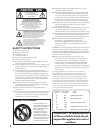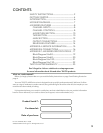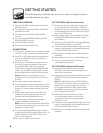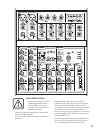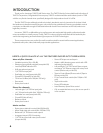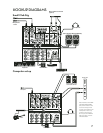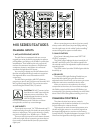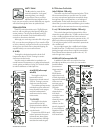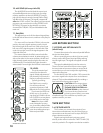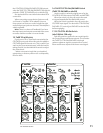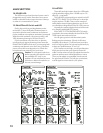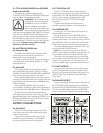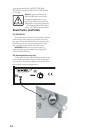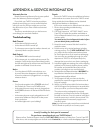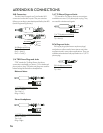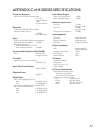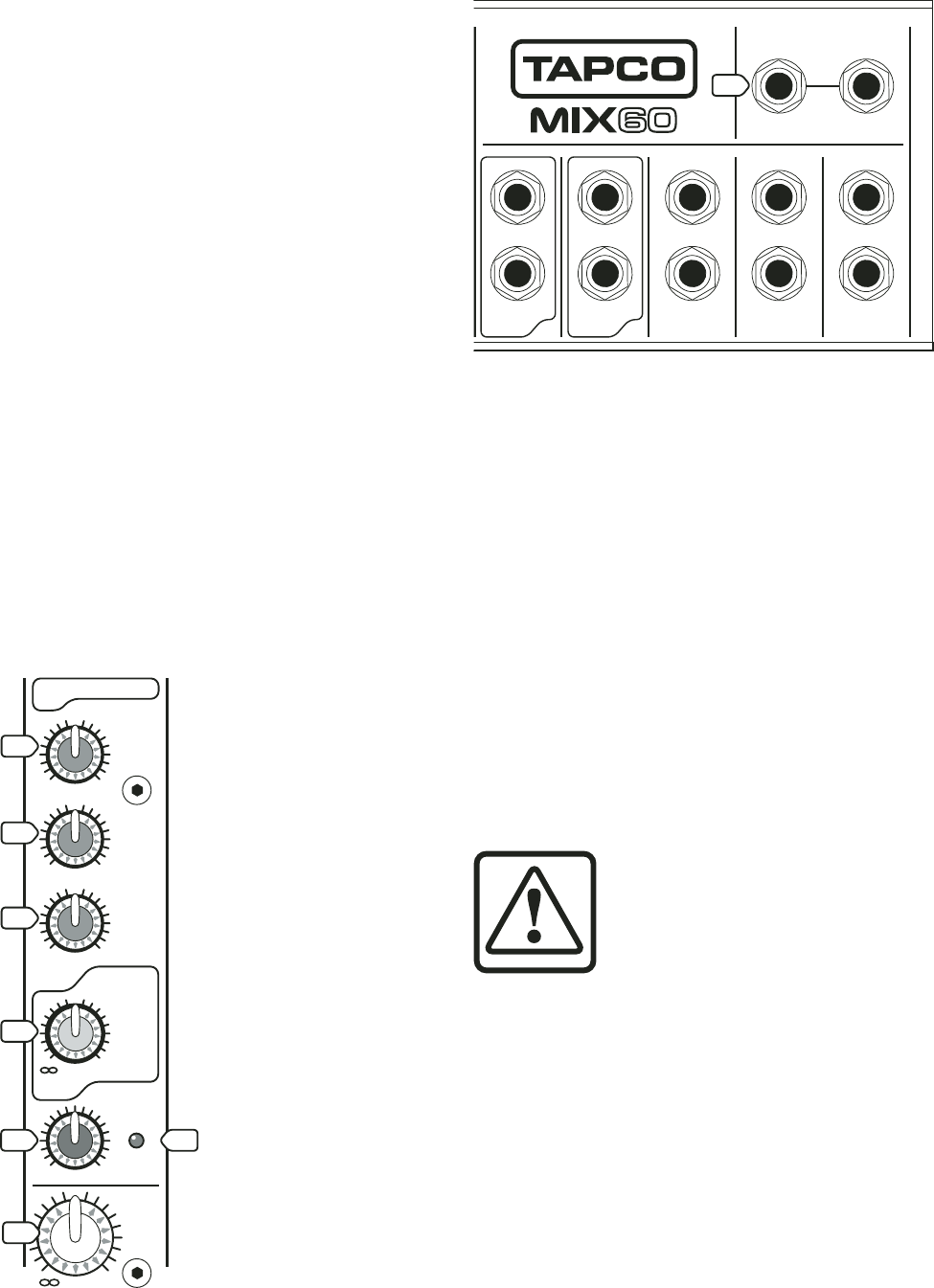
10
10. AUX SEND (all except Mix.50)
The AUX SEND is used to feed the mono input
of parallel eff ects devices or the input of a stage
monitor amplifi er via the AUX SEND (27) output
jack. All the channel controls (except PAN or BAL)
will aff ect the AUX signal. The signal is tapped off
after the LEVEL control. The output from an external
processor can come back in via the STEREO AUX
RETURN (13) inputs (on the Mix.60) or a stereo
channel (Mix.100/Mix.120), and be added to the
main mix.
11. PAN/BAL
This adjusts how much of the channel signal plays
in the left side of the main mix, and how much plays in
the right.
For mono mic/line channels, if PAN is in the center
position, the mono signal appears equally in both
the left and
right of the main mix. If the control is set
left, more of the
signal appears in the left side. If the
control is set right,
more of the signal appears in the
right side of the mix.
For stereo channels, the BAL control works like
a home stereo balance control, by attenuating one
side or the other. In the center position, the left and
right channel signals pass through to the main mix
unaff ected. If it is turned left, the right channel is
attenuated; if turned right, the left side is attenuated.
12. LEVEL
This is the master level
control for the channel’s
signal. Subtle adjustment of
the channels’ level control is
the key to a fi nely-tuned mix.
Typically (providing
the GAIN is set correctly),
this will be positioned
somewhere between 0 dB
(U) and the 3 o’clock position.
If you have the LEVEL set
all the way up, it’s usually a
sign that your GAIN is set too
low. If LEVEL is set way down,
your GAIN may be too high.
Note:
If this were a slide
control instead of a rotary
one, it would be called a fader.
It still serves as the reference
point when talking about pre-
fader and post-fader.
AUX RETURN SECTION
13. STEREO AUX RETURN INPUTS
(Mix.60 only)
Connect the outputs of an external parallel eff ects
device into these inputs.
When connecting a mono device (just one cord),
always use the left (mono) input and plug nothing
into the right input. The signal will appear on both
sides.
The signal is added directly into the main mix.
There is no level control for the aux return signal,
but most external processors have an output level
control that you can use to adjust the signal being
returned to the mixer.
For the Mix.50, Mix.100, and Mix.120, connect the
aux return signal to the inputs of an unused stereo
channel. This has the added benefi t of providing a
level control for the aux return signal.
CAUTION: When using a stereo
channel as an aux return, TURN
THE AUX SEND CONTROL ALL
THE WAY DOWN on that channel.
If you have the Aux Send control
turned up even a little, it can create
a feedback loop. This would be very bad for your
speakers and for your ears.
TAPE SECTION
14. CD/TAPE INPUTS
This is where you connect the outputs of your
intermission entertainment. Any line-level mono or
stereo device can be used, such as: tape, DVD/CD
player, television audio, etc.
Signals coming into these inputs are routed
directly to the main mix when the TAPE TO MIX (15)
switch is pushed in. The signals can also be routed to
INPUT
BAL/UNBAL
INPUT
BAL/UNBAL
INPUT
3/4
MONO
MONO
L
R
LINE
5/6
MONO
MONO
L
R
LINE
BAL/UNBAL
BA
BA
L/UNBA
L/UNBA
L BA
BA
L/UNBA
L/UNBA
L
MONO
MONO
CTRL RM
OUT
OUT
L
R
L
STEREO AUX
RETURN
RETURN
R
MAIN
OUT
OUT
L
R
PHONES
AUX SEN
SEN
D
00
13
+1
+1
5-15
-15
U
+15
+15
-15
-15
U
EQ
+15
+15
-15
-15
U
HIGH
MID
2.5kH
2.5kH
z
12
12
kH
kH
z
+15
+15
1
AUX
SEND
SEND
+15
+15
U
LEVEL
LOW
80H
80H
z
PEA
PEA
K
PAN
RL
U
5
6
7
10
11
12
4
Mix.60 Mono Channel



